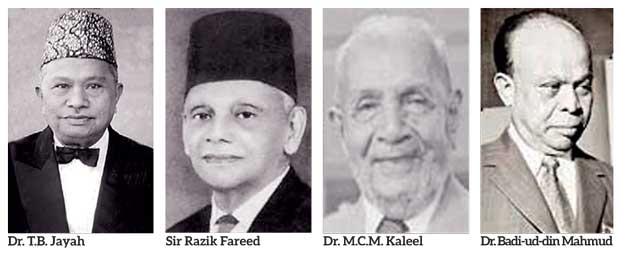
At least two U.N. human rights experts, Christof Heyns and Martin Scheinin, are asking the United States to disclose more details of the assassination, including whether there were any plans to capture him alive.
The administration of President Barack Obama, which has changed some aspects of its original account of the killing, is unequivocal in concluding that "justice was done". But that conclusion is being challenged by some constitutional experts and human rights activists who describe the killing as an arbitrary execution or a possible violation of international law.
Michael Ratner, president of the New York-based Centre for Constitutional Rights, says there are serious legal questions raised by the manner in which Bin Laden was killed. The most immediate is whether he should have been killed when the Navy Seals, described as a "hunter-killer" squad, confronted him in the bedroom of his compound in Abbottabad, Pakistan.
In a dramatic change of story, the U.S. administration later admitted he was unarmed and did not use a woman as a human shield, as originally declared.
"In such circumstances, the Seals should have captured him. To kill him at that point could be considered a war crime," Ratner told IPS.
The U.S. tried to justify the killing by claiming Bin Laden resisted, but when asked how he resisted, the press spokesperson could not answer, said Ratner. The next day, the U.S. claimed Bin Laden had a gun within reach and therefore had to be shot before he could grab it, he said.
"We will probably never know the true story, but it looks more and more like the Seals were told to kill him and not take him alive," said Ratner, who also teaches at the Columbia University Law School and is author of several books, including "Guantanamo: What the World Should Know".
"This would comport with the view that a determination was made by the administration that a dead Bin Laden was better than a live one," he added.
The U.S. administration has not managed to try the 9/11 conspirators they have held for years, much less were they relishing a Bin Laden on trial, he added.
A public trial with due process would have set an important precedent and perhaps, assuming Bin Laden was convicted, helped persuade doubters that he was a mastermind of 9/11 attacks and other crimes, noted Ratner.
Stephen Zunes, professor of politics and chair of Middle Eastern Studies at the University of San Francisco, summed it up as "a borderline call".
Given that there had been a raging gun battle in the same complex and in the same building, anything less than putting his hands up in the air could be considered potentially threatening in the heat of the moment and thereby legitimate self-defence, he said.
"At the same time, given the recent history of illegal assassinations by U.S. forces, there are bound to be continued questions," Zunes told IPS.
U.N. Secretary-General Ban Ki-moon has remained politically cautious in his comments.
His deputy spokesperson Farhan Haq said it is quite clear that the United Nations respects the right of all countries to pursue counterterrorism operations. But such operations, he pointed out, "need to be in conformity with international law. That's simply a standard set for every country."
Meanwhile, Heyns and Scheinin, the two U.N. experts dealing with extra-judicial killings and counter-terrorism, say it will be particularly important to know if the planning of the mission allowed an effort to take Bin Laden alive.
"It may well be that the questions that are being asked about the operation could be answered, but it is important to get this into the open," they said in a statement released last week.
They also pointed out that in certain exceptional cases, the use of deadly force may be permissible, as a measure of last resort in accordance with international standards on the use of force, to protect life, including in operations against terrorists.
"However, the norm should be that terrorists be dealt with as criminals, through legal processes of arrest, trial and judicially decided punishment," they stated.
Criticism of the killing also came from an unexpected quarter: the Archbishop of Canterbury Rowan Williams.
Briefing reporters in London last week, Williams declared: "I think that the killing of an unarmed man is always going to leave a very uncomfortable feeling because it doesn’t look as if justice is seen to be done in those circumstances."
Asked if the Bin Laden killing could be construed as "targeted killing", Ratner told IPS "it is most likely what it was."
"The circumstances of his killing indicate that the order to the Navy Seals was to kill, although with all the changes in story we cannot be sure," he added.
Such an order to kill, whether Bin Laden or others such as the radical cleric Anwar al-Awlaki, based in Yemen, or those killed by drones in Pakistan, is likely contrary to international law and could constitute summary execution, he said.
Outside of war zones, an order to kill can only be issued against a person who is an imminent threat and that threat must be concrete and specific. Without such a concrete and imminent threat non-lethal force must be used first, and only if absolutely necessary can lethal force be used, Ratner noted.
He also pointed out that crossing the border of a state to kill people or sending drones into another state except in a war is banned by Article 2(4) of the U.N. Charter.
Of course, the state into which the drones are sent can always consent. In addition, if the state sending the drones or kill team claims self-defence because the other state refused to or cannot stop attacks from its territory, the Charter would not be violated.
(END)
———————————————————–
thalif deen
un bureau chief & regional director
inter press service (IPS) news agency
united nations, room L-214
new york, ny 10017
Post Disclaimer | Support Us
Support Us
The sailanmuslim.com web site entirely supported by individual donors and well wishers. If you regularly visit this site and wish to show your appreciation, or if you wish to see further development of sailanmuslim.com, please donate us
IMPORTANT : All content hosted on sailanmuslim.com is solely for non-commercial purposes and with the permission of original copyright holders. Any other use of the hosted content, such as for financial gain, requires express approval from the copyright owners.
 Sri lanka Muslims Web Portal Sri Lanka Muslims News Center
Sri lanka Muslims Web Portal Sri Lanka Muslims News Center
 Donate
Donate


